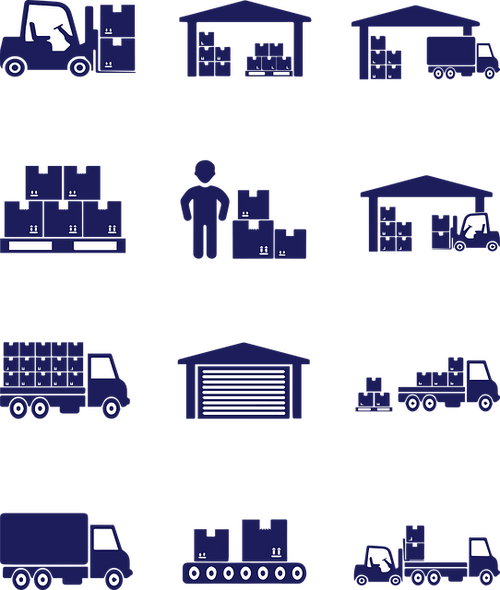
Build a Profitable Niche Website for Passive Income
Share
In today’s digital world, creating a niche website as part of an online business can be a great way to earn passive income. Many people have discovered that with the right approach, they can build websites that generate significant revenue each month. This guide will walk you through the essential steps to develop a successful niche website, even if you’re starting from scratch. You’ll learn how to choose a niche, understand your audience, conduct keyword research, create valuable content, and monetize your site effectively.
Niche Website for Passive Income - Key Takeaways
- Pick a niche that interests you and has a market demand.
- Know your audience by creating a detailed buyer persona.
- Use tools to find keywords that can help your site rank higher.
- Create quality content that resonates with your audience.
- Explore various monetization options like affiliate marketing and ads.
Choosing the Right Niche for Your Passive Income Website

Finding the right niche is the first step in building a successful passive income website. A profitable niche can lead to significant earnings if approached correctly. Brainstorming potential niche ideas is crucial to ensure you select a topic that aligns with your interests and has market potential. Here’s how to get started:
Identifying Profitable Niches
- Research Products and Services: Check platforms like Amazon or eBay to see if there are products being sold in your profitable niche site.
- Look for Advertisements: If you find ads related to your niche on Google, it’s a good sign that it’s profitable.
-
Check for Existing Websites: Look for both large and small websites that are making money in your niche.
Evaluating Competition and Demand
| Niche | Monthly Traffic | Traffic Value |
|---|---|---|
| Golf | 33,500 | $20.9K |
| Men’s Grooming | 927,000 | $925K |
| Paleo Diet | 266,000 | $224K |
When evaluating competition and demand, it's crucial to consider how optimizing for search engines can significantly impact your site's visibility. Gaining visibility in search engines like Google is essential but can take time, especially for new sites. By optimizing your site content, you can improve your rankings and eventually attract organic traffic from search engines.
Finding Your Unique Angle
- Identify Gaps: Look for areas in your niche that are not well covered.
- Leverage Personal Experience: Use your own knowledge to create unique content.
- Engage with Your Audience: Ask potential visitors what they want to see in your niche.
Choosing the right niche is crucial for your website’s success. It sets the foundation for everything that follows, from content creation to monetization strategies. Focusing on building one site initially allows you to gain experience and develop essential skills in SEO and monetization.
Understanding Your Target Audience

Creating a Buyer Persona
Creating a buyer persona is essential for knowing who you want to reach. This persona is a detailed description of your ideal customer based on research. Here are some key points to consider:
- Demographics: Age, gender, location, and income level.
- Interests: Hobbies, preferences, and lifestyle choices.
- Challenges: What problems do they face that your content can solve?
Researching Audience Needs and Preferences
To effectively connect with your audience, you need to understand their needs. Here are some methods:
- Surveys: Ask your audience directly about their preferences.
- Social Media: Observe discussions and comments to gauge interests.
- Competitor Analysis: Look at what similar sites are doing to attract their audience.
Understanding these needs can help you explore various methods and strategies for generating money online through niche websites.
Tailoring Content to Your Audience
Once you know your audience, you can create content that resonates with them. Consider these strategies:
- Use simple language that is easy to understand.
- Address their specific needs and interests in your articles.
- Include calls to action that guide them on what to do next.
Understanding your audience is crucial for creating content that not only attracts visitors but also converts them into loyal followers. By focusing on their needs, you can build a successful niche website that generates passive income.
Conducting Effective Keyword Research

Using SEO Tools for Keyword Research
To kick off your keyword research, using the right tools is crucial. Here are some popular options:
- Google's Keyword Planner: A free tool that helps you find keywords and their search volumes.
- Ahrefs: A paid tool that provides in-depth analysis of keywords and competitors.
- Keysearch: Another paid option that saves time and offers detailed insights.
Analyzing Competitor Keywords
Understanding what keywords your competitors are targeting can give you a significant advantage. Here’s how to analyze them:
- Identify both big and small websites in your niche.
- Use tools like Ahrefs to see which keywords they rank for.
- Look for keywords with low competition that you can target to improve your visibility on search engines.
Finding Low-Competition Keywords
Finding keywords that are easier to rank for is essential for success. Here are some tips:
- Focus on long-tail keywords, which are more specific and often less competitive.
- Check for keywords that have a decent search volume but low competition.
- Use tools to filter out high-competition keywords and focus on those with potential.
Remember, effective keyword research is not just about finding popular terms; it’s about finding the right terms that fit your niche and audience.
By conducting thorough keyword research, you can set a strong foundation for your niche website and increase your chances of attracting traffic and generating passive income.
Building and Designing Your Niche Website

Creating a niche website is an exciting journey that can lead to passive income. The design and structure of your site are crucial for attracting and retaining visitors. Having a reliable host for a new site is essential to ensure smooth performance and user experience. Here’s how to get started:
Selecting the Right Platform and Tools
-
Choose a web hosting service:
As a site owner, this is where your website will live. Look for reliable options that fit your budget.
- Install a content management system (CMS): WordPress is a popular choice due to its user-friendly interface and flexibility.
- Pick a theme: Select a theme that matches your niche and is easy to navigate.
Designing a User-Friendly Interface
- Keep it simple: A clean design helps visitors find what they need quickly.
- Use clear navigation: Make sure your menu is easy to understand.
- Incorporate a search bar: This allows users to find specific content easily.
Optimizing for Mobile Devices

With many users browsing on their phones, it’s essential to ensure your site is mobile-friendly. Here are some tips:
- Responsive design: Choose a theme that adjusts to different screen sizes.
- Fast loading times: Optimize images and reduce unnecessary plugins to speed up your site.
- Test on various devices: Regularly check how your site looks on different smartphones and tablets.
Building a niche website is not just about aesthetics; it’s about creating a space where users feel comfortable and engaged.
By following these steps, you can create a niche website that not only looks good but also functions well, helping you to attract and retain visitors effectively. Remember, the goal is to provide value while making it easy for users to navigate your site.
Creating High-Quality Content

Developing a Content Strategy
Creating high-quality content starts with a solid plan. Here are some steps to consider:
- Identify your audience's interests: Understand what topics resonate with them.
- Set clear goals: Decide what you want to achieve with your content, like increasing traffic or sales.
- Create a content calendar: Schedule your posts to maintain consistency.
Writing Engaging and Informative Articles
To keep your readers interested, focus on these key points:
- Use simple language: Make your content easy to read.
- Include personal stories: Share experiences to connect with your audience.
- Add visuals: Use images or infographics to break up text and illustrate points.
Using Multimedia to Enhance Content
Incorporating different types of media can make your content more appealing. Consider:
- Videos: Create short clips to explain complex topics.
- Podcasts: Offer audio content for those who prefer listening.
- Interactive elements: Use quizzes or polls to engage your audience.
High-quality content is essential for improving your SEO. It helps attract visitors and keeps them coming back for more.
By focusing on these strategies, you can create content that not only informs but also engages your audience, leading to better results for your niche website. Remember, the goal is to provide value and build trust with your readers.
Monetizing Your Niche Website

Monetizing your niche website is essential for generating money online. Here are some effective strategies:
Affiliate Marketing Strategies
- Choose the right products: Select products that align with your niche and audience interests; especially if you are managing affiliate sites to generate passive income.
- Use affiliate links: Incorporate these links in your content to earn commissions on sales.
- Promote through reviews: Write honest reviews to build trust and encourage purchases. Consider exploring other affiliate programs to diversify your income sources and mitigate risks associated with relying on a single program.
Using Ad Networks
- Google AdSense: A popular choice for displaying ads on your site.
- Media.net: Another option that offers contextual ads.
- Direct ad sales: Sell ad space directly to businesses in your niche.
Selling Your Own Products or Services
- E-books: Create and sell e-books related to your niche.
- Online courses: Share your expertise through courses.
- Membership sites: Offer exclusive content for a subscription fee.
Remember: Experiment with different monetization methods to find what works best for your audience.
| Monetization Method | Description | Potential Earnings |
|---|---|---|
| Affiliate Marketing | Earn commissions by promoting products | Varies |
| Ad Networks | Display ads and earn per click/impression | Varies |
| Selling Products/Services | Direct sales of your own offerings | High potential |
Implementing SEO Best Practices
On-Page SEO Techniques
To make your online business more visible, you need to focus on on-page SEO. This means optimizing your content and structure. Here are some key points to consider:
- Use your main keyword in the title and first paragraph.
- Include relevant keywords throughout your content.
- Make sure your website loads quickly and is easy to navigate.
Off-Page SEO Strategies
Off-page SEO is about building your website's reputation. Here are some effective strategies:
- Create shareable content to earn backlinks.
- Use the Skyscraper Technique to improve your link-building efforts.
- Engage in guest posting to reach new audiences.
Monitoring and Adjusting SEO Efforts
Regularly check how your website is performing. Here’s how:
- Use tools like Google Analytics to track your traffic.
- Monitor your keyword rankings to see what’s working.
- Adjust your strategies based on the data you collect.
Remember, SEO is a long-term game. Patience and consistency are key to seeing results over time.
Leveraging Social Media for Traffic

Social media is a powerful tool to drive traffic to your niche website. By sharing your content regularly, you can reach a larger audience and attract more visitors. Here are some effective strategies:
Choosing the Right Social Media Platforms
- Facebook: Great for sharing articles and engaging with followers.
- Instagram: Perfect for visual content and connecting with a younger audience.
- Pinterest: Excellent for driving traffic through eye-catching pins.
Creating Shareable Content
- Use high-quality images and graphics to grab attention.
- Write catchy headlines that encourage clicks.
- Include calls to action in your posts to guide users to your website.
Engaging with Your Audience
- Respond to comments and messages promptly.
- Join relevant groups and forums to share your expertise.
- Run contests or giveaways to increase interaction.
Social media is not just about posting; it’s about building relationships. Consistent engagement can turn followers into loyal visitors.
By implementing these strategies, you can effectively leverage social media to boost traffic to your niche website and enhance your online presence.
Analyzing and Improving Website Performance

To make your niche website successful, you need to analyze its performance regularly. This helps you understand what works and what doesn’t. Here are some key areas to focus on:
Using Analytics Tools
- Google Analytics: This tool tracks visitor behavior, showing you how they interact with your site.
- Heatmaps: These tools show where users click the most, helping you improve layout and design.
- Conversion Tracking: Monitor how many visitors take desired actions, like signing up or making a purchase.
Tracking Key Performance Indicators
To measure your website's success, keep an eye on these important metrics:
| Metric | Description |
|---|---|
| Traffic | Number of visitors to your site |
| Bounce Rate | Percentage of visitors who leave after one page |
| Conversion Rate | Percentage of visitors who complete a goal |
Making Data-Driven Decisions
- Identify Trends: Look for patterns in your data to see what content performs best.
- Adjust Strategies: If certain pages aren’t performing well, consider updating or removing them.
- Test Changes: Use A/B testing to see how different changes affect user behavior.
Regularly analyzing your website's performance can help you create more targeted content, improve SEO visibility, and connect with top referrals. This data can help your business build productive strategies for growth.
By focusing on these areas, you can continuously improve your website and increase your chances of earning passive income.
Scaling and Expanding Your Niche Website
As your niche website grows, it’s essential to think about how to scale effectively. This means not just increasing traffic but also enhancing your revenue streams. Here are some strategies to consider:
Outsourcing Content Creation
- Hire Freelancers: Look for writers who specialize in your niche to create high-quality articles.
- Use Content Agencies: These can provide a steady stream of content tailored to your audience.
- Guest Posts: Invite experts to write for your site, which can also help with networking.
Exploring New Revenue Streams
- Affiliate Programs: Join new affiliate programs that align with your niche.
- Digital Products: Consider creating eBooks or online courses to sell.
- Memberships: Offer exclusive content for a monthly fee.
Building Additional Niche Sites
- Diversify: Create new sites in related niches to broaden your audience - diversifying your income sources by participating in other affiliate programs can ensure long-term passive income stability and mitigate risks associated with changes in commission rates.
- Replicate Success: Use the same strategies that worked for your first site.
- Cross-Promotion: Promote your new sites on your existing platforms.

Expanding your niche website is not just about more traffic; it’s about creating a sustainable income model that can grow over time. Starting with one site allows you to learn essential skills such as SEO and monetization practices, which serve as foundational knowledge for future projects. By implementing these strategies, you can effectively scale your niche website and increase your passive income potential. Remember, the key is to stay adaptable and open to new opportunities as they arise!
Ready to take your niche website to the next level? Explore our tips and tricks to grow and expand your online presence. Don't miss out on valuable insights—visit our website today!
Final Thoughts on Building Your Niche Website
Creating a niche website for passive income is not just a dream; it can be your reality. By following the steps outlined in this guide, you can turn your interests into a money-making venture. Remember, it takes time and effort to see results, but with patience and dedication, you can build a site that earns money while you sleep. Start today, and don’t be afraid to learn from your mistakes. Each step you take brings you closer to financial freedom and the chance to enjoy life on your terms.
Frequently Asked Questions
What is a niche website?
A niche website focuses on a specific topic or area of interest, allowing you to attract a targeted audience.
How do I choose the right niche for my website?
Look for topics you enjoy and that have products or services available. Check if people are searching for them online.
Can I make money from a niche website?
Yes! Many people earn money through ads, affiliate marketing, or selling products on their niche websites.
How long does it take to start making money?
It varies, but with dedication, you could start seeing some income in a few months.
Do I need to know coding to build a niche website?
Not really! Many platforms make it easy to build websites without any coding knowledge.
What kind of content should I create for my niche site?
Focus on high-quality, engaging content that answers questions or solves problems for your audience.
How do I drive traffic to my niche website?
You can use social media, SEO, and email marketing to attract visitors to your site.
Is it necessary to update my website regularly?
Yes, keeping your content fresh and relevant can help improve your site’s visibility and attract more visitors.











































































































